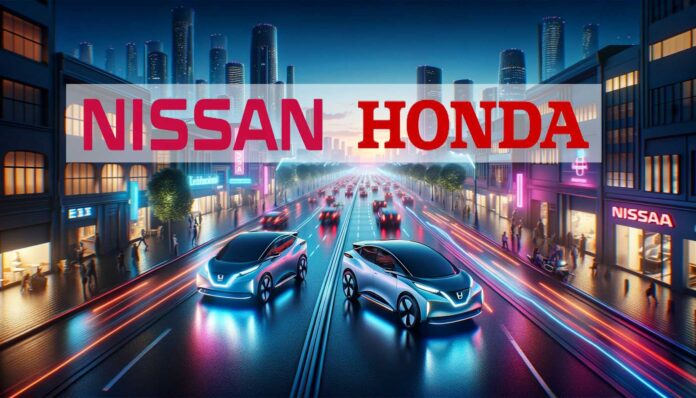Wow, we didn’t see that coming! In an unprecedented move that could dramatically alter the electric vehicle (EV) landscape, Japan’s automotive titans, Nissan Motor and Honda Motor, have announced their intent to explore a groundbreaking strategic partnership. This collaboration, encapsulated in a memorandum of understanding (MoU), aims to unify their efforts in the critical areas of EV component development and the integration of artificial intelligence within automotive software platforms.
A Strategic Shift to Counter Global Competition
At the heart of this potential alliance is a strategic pivot designed to confront the escalating competition and rapid innovation that defines the global EV market. Nissan, an early pioneer in the EV space with its renowned Leaf model, has found it challenging to maintain its lead amidst the aggressive expansion of competitors like China’s BYD and Tesla from the U.S. Nissan CEO Makoto Uchida’s candid admission at a recent press briefing underscores a stark realization: traditional methodologies and the status quo are insufficient in this new era of automotive evolution.
Conversely, Honda, despite its considerable prowess in the broader automotive industry, has been a laggard in the electric transition, with its EV sales making up a negligible portion of its global sales. This partnership could be the catalyst Honda needs, potentially hastening its shift towards a future where electric and fuel cell vehicles dominate its product lineup, in line with its ambitious goal of a 100% EV and fuel cell vehicle sales ratio by 2040.
Economies of Scale and Innovation Synergies
The collaboration between Nissan and Honda is poised to unlock significant synergies, particularly in achieving economies of scale—essential for competitive pricing and fostering innovation in the EV market. Something the market seriously needs. By pooling resources in areas such as production efficiency, joint procurement, and shared platform development for future EV models, the two companies can significantly enhance their competitive stance against giants like BYD and Tesla, possibly setting a new collaborative benchmark in the industry.
This alliance also strategically aligns with Nissan’s existing partnerships, notably with Renault and Mitsubishi Motors, emphasising a nuanced approach to collaborations that respects ongoing alliances while navigating new cooperative ventures. This multifaceted partnership strategy may afford Nissan and Honda a distinctive edge in the intricate global automotive landscape, marked by evolving partnerships and complex supply chain dynamics.
Implications for the EV and Battery Markets
For the EV and battery markets at large, the Nissan-Honda partnership heralds a potential acceleration in the pace of technological advancements and the introduction of more economically viable vehicle options. This development is likely to spur other automakers into seeking similar collaborations, promoting a more cooperative and innovative industry ecosystem.
The ramifications for other EV competitors are stark, suggesting an impending intensification of innovation and competitive dynamics. This may compel industry players to adopt new strategic postures and partnerships to remain relevant, heralding a period of rapid market evolution with broader choices for consumers and accelerated global EV adoption.
As the automotive world watches this unfolding partnership between Nissan and Honda, the message is clear: the future of mobility is collaborative, innovative, and electric. This historic alliance not only reflects the urgent adaptation required of legacy automakers in a shifting landscape but also illuminates the transformative potential of strategic collaborations in driving the next wave of growth in the EV sector.








